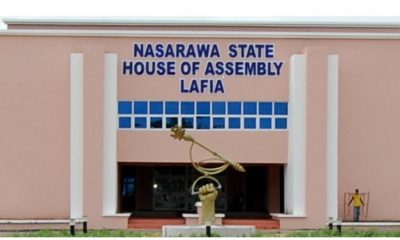Business
Angola Capital Costliest For Expatriates
In the Angolan capital with its seemingly endless slums and crippling poverty, Jose Motto picked up a four-pack of yogurt priced several times what it would cost at a fancy supermarket in Europe.
“This costs 20 dollars, at least three times more than what I would pay in Europe,” said Motto, a Portuguese national who works as a human resources consultant in Luanda.
Such is life in Luanda, an oil boom city that has grown well beyond its means and has attracted hordes of foreign workers competing for scarce resources.
The capital, in a country where most of the population lives in poverty, has overtaken Tokyo as the most expensive in the world for foreigners, according to a study by consulting firm Mercer.
Foreigners plop down 15 dollars for a cheeseburger, 150 dollars for haircuts; 2,500 dollars for a one-year gym membership and tens of thousands of dollars for rent.
But for the majority of Angolans, an estimated two-thirds of whom live on less than two dollars a day, the only thing the oil boom has made more affordable to them is gasoline, although many will never be able to buy a car in their lifetime.
The southwest African nation faces a housing shortage as it recovers from a three-decade-long civil war that devastated the countryside and prompted millions to flee to the cities.
With Angola importing over 90 percent of its building material, construction projects are expensive and often come with huge delays.
“Foreign companies know about the high cost of doing business in Angola,” said Nuno Serrenho, head of Colliers International in Angola.
“That’s why they increase the price of their products and services to make up for their extra costs and still make a huge profit.”
Property values, particularly in the capital skyrocketed after a 27-year civil war that ended in 2002.
About a third of the country’s 16.5 million people live in Luanda.
When the war ended, the rush to tap into the country’s oil wealth began. Angola rivals Nigeria as Africa’s biggest oil producer.
China has supplied billions in loans to rebuild infrastructure, helping to fuel the property boom. The Asian powerhouse imports more oil from Angola than from anywhere else in the world.
Hotel prices have jumped. Rooms in Angola’s first five star hotel in the city’s residential area of Luanda Sul can cost between 700 dollars to 5,000 dollars a night, making them some of the costliest in the world but offering few of the amenities of the prime properties in other capital cities.
Angola, which ranks as one of the world’s most corrupt nations, wants to see more foreign companies in the country to fill state coffers.
It depends on tax and royalty fees from energy firms for 90 percent of its income and relies heavily on oil revenue to finance reconstruction.
The country’s legions of poor see no relief in sight.
“Foreigners normally complain about the high cost of living in Luanda but it is the poor that suffer the most,” said Victor Ribeiro, a father of four children who works on a 500 dollars-a-month salary as a driver for an expatriate in Luanda.
Business
NCDMB, Dangote Refinery Unveil JTC On Deepening Local Content

Business
Industry Leaders Defend Local Content, … Rally Behind NCDMB

Business
Replace Nipa Palms With Mangroove In Ogoni, Group Urges FG, HYPREP

-

 Business1 day ago
Business1 day agoIndustry Leaders Defend Local Content, … Rally Behind NCDMB
-

 Politics24 hours ago
Politics24 hours agoNasarawa Speaker Advocates Conducive Executive/Legislature Relations
-
Niger Delta1 day ago
Delta Leverages On Extensive River Networks To Drive Blue Economy
-
News1 day ago
FG Renames University of Maiduguri After Buhari …As Tinubu Pours Encomiums On Late President
-
News1 day ago
PCRC Dismisses Claims Of Police Strike As Fake, Mischievous
-

 News23 hours ago
News23 hours agoRivers PDP Debunks Sale Of LGA Election Forms
-
Niger Delta1 day ago
Bishop Mocks Fake Prophecy Seekers … As Priests Relive Challenges At Ordination Ceremony
-
Rivers1 day ago
Macobarb CEO Cries Out, Says No Indigenous Contractor Can Win Case Against NLNG Or Oil Majors in Nigerian Courts …As Justice Nwogu Throws Out Macobarb’s N5.74bn Claim

